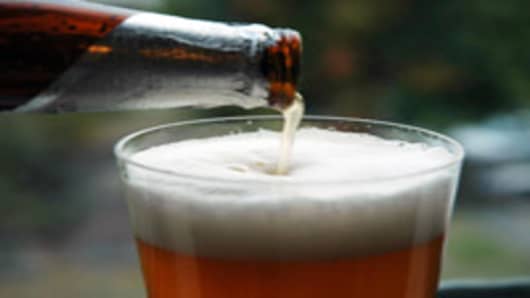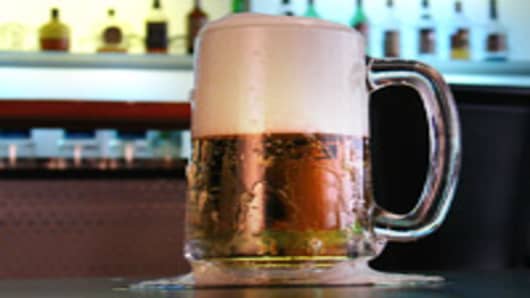"Beer is one of the less affected consumer categories in economic recessions. It's clearly not immune to weaker economies but overall it's holding up well," Carlsberg Chief Executive Jorgen Rasmussen told a conference call.
The two bought Scottish & Newcastle for 7.8 billion pounds ($11.03 billion) in 2008, Heineken chiefly getting the British assets while Carlsberg expanded in Russia and France.
Analysts said Wednesday's figures suggested Carlsberg had got the better part of the deal.
Heineken, which brews beer under its own name and the 'Amstel' brand, said its focus now would be on cash generation of over 100 percent of net profit for 2009-2011 to pull net debt down to 2.5 times EBITDA (earnings before interest, tax, depreciation and amortization) from 3.3 times.
Cash generation had been on average 50 percent of profit in 2007 and 2008 as the company expanded in eastern Europe and Africa.
Capital expenditure would drop to 700 million euros from 1.1 billion in 2008.
Cost Cuts
It also unveiled a new three-year cost-cutting program, 'Total Cost Management', but gave no targets.
Its Fit2Fight scheme concluded in 2008 with 486 million euros in savings.
Carlsberg's Rasmussen said his company would focus in 2009 on increasing cash flow and cost control, "significantly" reduced capital expenditure and accelerated debt repayment.
The group last year announced a number of cost cuts in its French and British businesses.
Capital expenditure would drop to 3.75 billion crowns in 2009 from 5.3 billion in 2008 and it would reduce net debt to about 3 times EBITDA by the end of the year from about 3.8 times at the end of 2008.
One positive note would be lower costs for oil, aluminum for cans and essential ingredients such as barley in 2009.
Brewers faced double-digit percentage rises in input costs last year.
"We have contracted part of input costs, but clearly there is a very strong downward trend," said Heineken CEO Jan-Francois van Boxmeer, adding that the 2009 rise would be "substantially lower" than the 8 percent it had previously forecast.
Heineken reported an 11 percent rise in 2008 operating profit before exceptionals to 1.93 billion euros, below forecasts of 1.98 billion euros.
Carlsberg, which brews 'Baltika' beer as well as its own brand, posted a 52 percent increase in operating profit to 8.0 billion crowns ($1.45 billion), slightly above expectations, and forecast a figure of 9.0 billion for 2009.
Heineken shares were up 2.28 percent at 21.54 euros at the closing bell and Carlsberg's 2.5 percent higher at 20O crowns.



